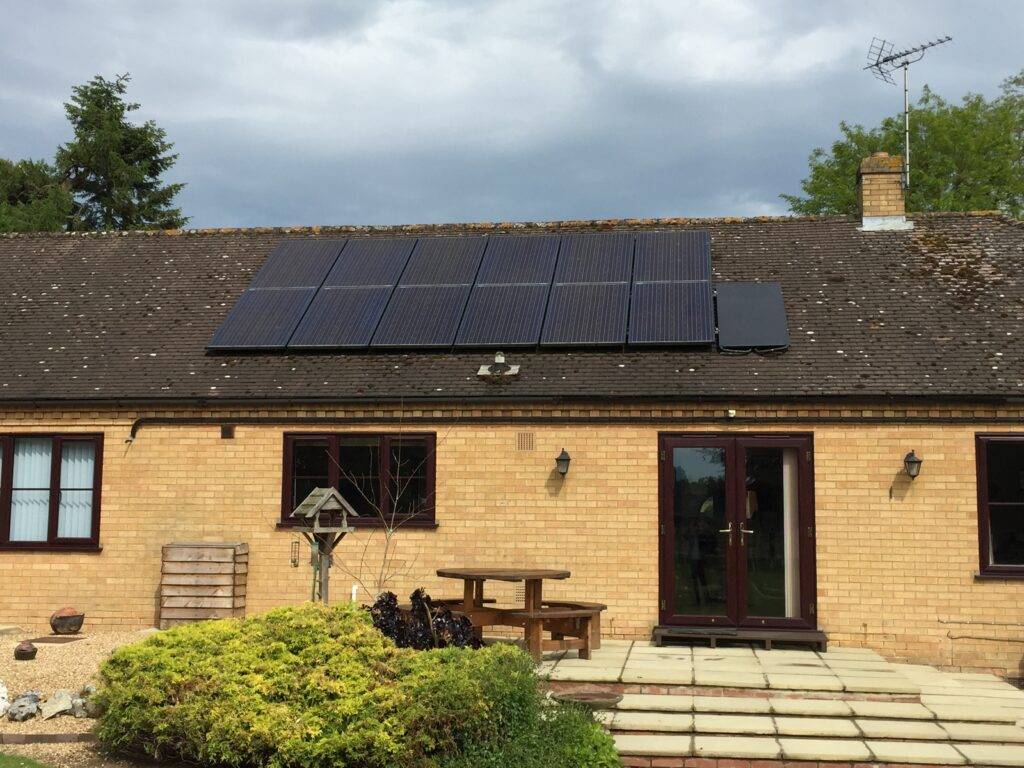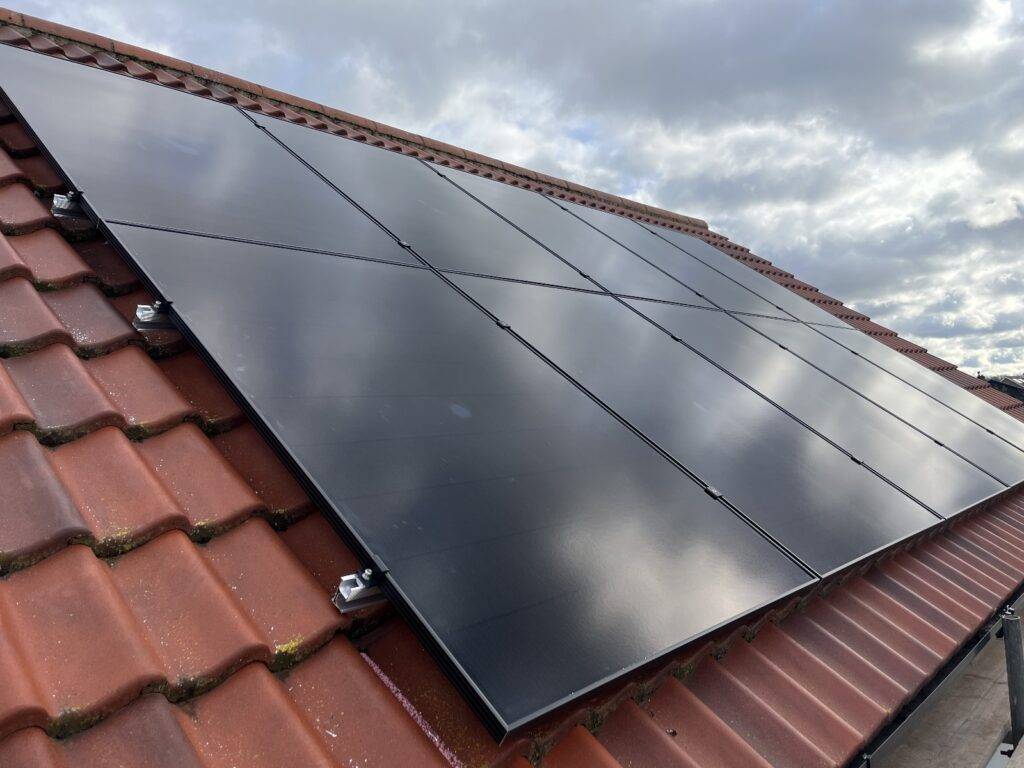Save Up to £410 a Year: Discover Solar Power Benefits for UK Homes
There’s no real point ignoring the facts–energy bills are soaring, and each year we’re having to shiver our way into late October, if not early November, before turning on the heating. So, what exactly are homeowners to do? The answer is really quite simple and only requires us to lay the foundation to then reap the benefits–Solar Energy! A new study published by the Building Research Establishment indicates that nearly 48% of UK houses are already fit and suitable for solar panel installation, and that by acting on the same the country could collectively save 5.6 billion pounds on energy bills every year. Homeowners in Norfolk can save now, find out how.

Table of Contents
Understanding the numbers
It all boils down to just a matter of numbers. A standard domestic solar panel system in the UK can generate roughly 3,500 to 4,500 kWh of electricity per year. Considering that the average UK household consumes about 3,600 kWh per year, this means solar panels could potentially cover your entire electricity usage!
This coverage can save you anywhere between £400 and £600 annually, depending on the size of your system, location, and electricity prices. The more electricity you use during the day (when your panels are working hardest), the more you stand to save. Given that solar panels have a lifespan of 25-30 years, that adds up to some pretty significant long-term savings—potentially as much as £15,000 or more over the lifetime of your panels.
All right, but do you really plan on living in the same house for the next 30 years? Is it really worth it to make the switch.
Can Solar panels can increase the value of your home?
In short, yes! Solar panels can increase the value of your home. As the UK continues to move towards a greener future, properties with eco-friendly features are becoming more desirable. Potential buyers are increasingly on the lookout for homes that come with energy-saving benefits built-in, and solar panels are high on that list.

A recent study by Energy Saving Trustfound that homes with solar panels sell for around 4-5% more than similar properties without them and for an average UK home valued at around £250,000, that could mean a £10,000-£12,500 increase in property value.
So why this delay in laying the foundation?
It has been a well established fact for many years that when shifting over to alternative sources of energy the up front investment often dissuades buyers from looking at the long term cost effectiveness and savings, but this is why the UK government has initiated a number of schemes and saving methods to enable homeowners to cut costs on that initial investment and eventually their energy bills in the long term.
how you can help with the Push for net zero
As the UK aims to reach net zero carbon emissions by 2050, switching to solar energy could play a major role in this goal by cutting carbon emissions by as much as 14.8 million tonnes each year. This reduction would be like removing more than half of the petrol cars in the UK—around 10.1 million vehicles—from the roads for that time. In order to support this transition, there are now several government schemes, financial benefits, and savings opportunities that homeowners should explore when planning for their future energy needs.
There are five major incentives for the installation of solar panels by homeowners in the UK, these are: Smart Export Guarantee, 0% VAT, Home Energy Scotland Grant and Loan, Home Upgrade Grant, and the Warm Homes Nest Scheme.
Apart from these there are also tips and tools that homeowners can use to make the most of their solar panels in the long term and gain benefits for the installation in the short term.
Below is a brief overview of the same:
Incentives
Smart Export Guarantee (SEG)
Under the Smart Export Guarantee(SEG), you can earn money for the electricity your solar panels generate but don’t use. Rather than going to waste, this excess electricity gets exported back to the National Grid. Energy suppliers are required to pay you for this surplus power, so not only will your panels save you money on your energy bills, but they could also earn you a bit of extra income on the side. Payments vary depending on your supplier, but typically range from 1p to 15p per kWh of exported energy.
0% VAT
The 0% VAT rate applies to the installation of energy-saving materials (ESMs) in residential properties, including solar panels. The rate will remain at 0% until March 31, 2027, when it will return to 5%. So, if you’re thinking of installing solar panels do it while there’s still 0% VAT! allowing for a discount of over £2,850 on the purchase of a 4kW system
Home Energy Scotland Grant and Loan
The Home Energy Scotland Grant and Loan Scheme, launched in December 2022, provides financial support to Scottish homeowners and private landlords to improve energy efficiency. The program offers up to £38,500 in total funding, including grants and interest-free loans. You can learn whether you qualify over here.
Home Upgrade Grant
The Home Upgrade Grant (HUG) is a government scheme in England that helps low-income households improve energy efficiency in homes without mains gas heating. To qualify, households must have a gross income below £36,000, an Energy Performance Certificate (EPC) rating of D or lower, and live in a hard-to-heat home. You can learn more about this here.
Warm Nest Scheme
The Welsh Government’s Warm Homes Nest scheme provides free advice and home energy efficiency improvements, such as insulation and heating systems, to help households reduce energy bills and carbon emissions. You can learn whether you qualify here.
Tips and Tools
Adding a battery
Alarmingly, 68% of people are also oblivious to the fact that their potential savings could soar if they added a battery to their solar setup.
Batteries enable homeowners to charge up their solar batteries when there is less sun for just 10p/kWh, for additional savings of up to £120 at no extra cost.
The Green Deal
The Green Deal helps homeowners make energy-saving improvements, such as insulation, heating, and renewable energy systems, while offering loans to cover the costs, which are repaid over time. Learn more about what the Green Deal offers here.
Proper Installation
Aside from grants, another factor that can drastically save money is the installer you hire. Choosing Wise Green Energyfor your solar panel installation ensures optimal efficiency and significant savings on electricity costs. Our customised solar panel systems are designed to fit your home perfectly, maximising energy production and savings while embracing a renewable energy source that contributes to a greener lifestyle. With minimal maintenance required post-installation, increased property value, and potential eligibility for government incentives, our advanced Solar PV systems represent a smart investment for both residential and commercial properties, allowing you to harness the endless power of the sun.
So there you have it, all the secrets to making the most out of switching to alternative energy in both the short and long term, but you’re still doubtful?
Is 5kW really enough to run a house?
The truth is for most households, a 5kW solar panel system will more than cover your electricity needs. To put it into perspective, the average UK household consumes around 3,600 kWh of electricity per year, and a 5kW system generates between 4,500 and 5,000 kWh annually.
So,
start saving ASAP
As energy bills keep climbing and the 0% VAT incentive remains in effect, now’s the perfect time to consider switching to solar. By doing so, you could cut your monthly expenses by £400 to £600 a year—potentially saving you an impressive £15,000 over the lifespan of your system. Plus, you can earn extra cash through the Smart Export Guarantee by selling your surplus energy back to the National Grid, all while boosting the value of your property and not compromising on the running of your household at all!

